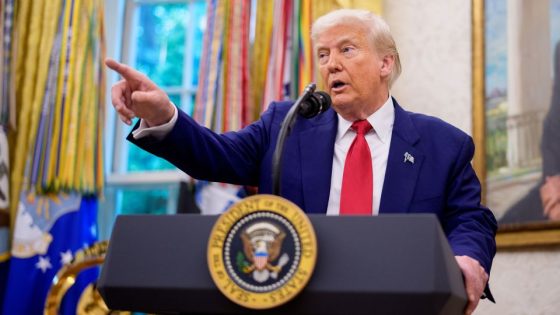President Donald Trump’s recent response to a reporter’s question about tariffs has sparked significant discussion, particularly around the newly coined term TACO, which stands for “Trump Always Chickens Out.” On May 31, 2025, Trump expressed frustration upon hearing the term, suggesting it undermines his negotiation strategy.
- Trump reacts negatively to "TACO" acronym.
- He was unaware of the term initially.
- Acronym signifies perceived weakness in negotiations.
- Originated from Financial Times columnist Robert Armstrong.
- TACO became popular in finance discussions.
- Trump insists his actions are negotiation tactics.
Caught off guard, Trump dismissed the term as “the nastiest question” and clarified that he views his tariff adjustments as strategic moves rather than signs of weakness. This incident highlights the ongoing tension between Trump’s trade policies and their perception in the financial world.
This exchange raises an important question: how do public perceptions shape economic policy? Trump’s irritation suggests he is acutely aware of how his actions are interpreted by both the media and Wall Street. Key points include:
- The TACO acronym reflects a broader sentiment on Wall Street regarding Trump’s tariff threats.
- Trump’s negotiation tactics often involve setting high tariffs before backing down.
- The incident underscores the delicate balance between political rhetoric and market reactions.
- Understanding these dynamics is crucial for investors and policymakers alike.
As the situation evolves, it will be essential for both the administration and investors to navigate these perceptions carefully. Will Trump’s negotiation style continue to shape market responses?

































